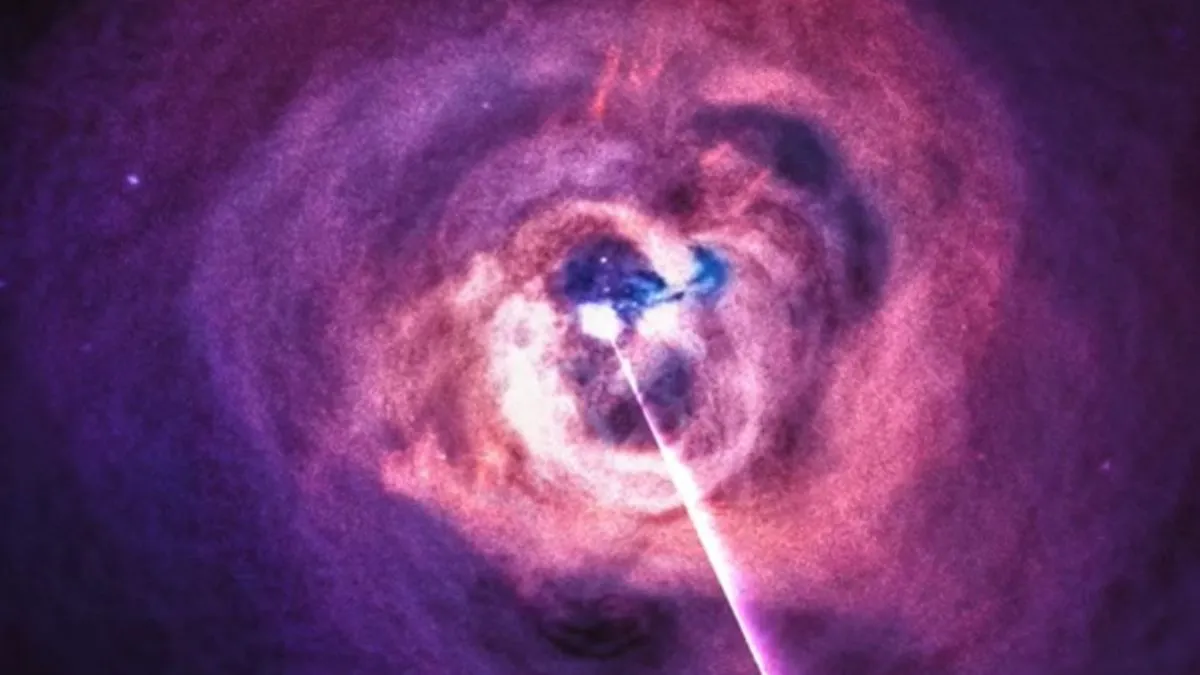- By Shivangi Sharma
- Tue, 28 Jan 2025 07:29 PM (IST)
- Source:JND
In a groundbreaking revelation, NASA has released an eerie audio clip of sound waves emanating from a supermassive black hole located at the centre of the Perseus galaxy cluster. This discovery, which has captivated both astronomers and the public, offers a rare and fascinating glimpse into the acoustics of the cosmos.
The acoustic waves, first detected in 2003, were initially too low in frequency for human ears to perceive. However, thanks to technological advancements and data manipulation, NASA has managed to transform these inaudible waves into a sound that is both chilling and otherworldly. The lowest note recorded, a B-flat, is an astonishing 57 octaves below middle C, with a frequency that stretches over 10 million years. This makes it the lowest pitch ever detected in the universe, far beyond the range of any sound we are accustomed to hearing on Earth.
The waves emanate from the supermassive black hole at the centre of the Perseus galaxy cluster, which contains an enormous amount of gas surrounding the black hole. Unlike the vast emptiness of space, the cluster is dense with gas, creating a unique environment where sound can travel.
This discovery has challenged the long-held misconception that there is no sound in space. While it is true that most of space is a vacuum providing no medium for sound waves to propagate galaxy clusters like Perseus, which are rich in gas, allow for the transmission of sound waves.
The misconception that there is no sound in space originates because most space is a ~vacuum, providing no way for sound waves to travel. A galaxy cluster has so much gas that we've picked up actual sound. Here it's amplified, and mixed with other data, to hear a black hole! pic.twitter.com/RobcZs7F9e
— NASA Exoplanets (@NASAExoplanets) August 21, 2022
ALSO READ:India-China To Resume Direct Flights: What It Means For Indian Students And Travel Costs | EXPLAINED
Eerie Sounds Of Black Hole
NASA explained, “The misconception that there is no sound in space originates because most space is a vacuum, providing no way for sound waves to travel. A galaxy cluster has so much gas that we've picked up actual sound. Here it’s amplified, and mixed with other data, to hear a black hole!” This phenomenon is remarkable because it allows scientists to hear what is happening around a black hole, providing insight into the behaviour of the gas and the immense gravitational forces at play.
The sound clip itself is not simply a pure pitch but a mixture of data, including frequencies and waves from the surrounding gas, transformed into a format that can be heard by the human ear, according to NASA. The eerie wails that emerge from the supermassive black hole evoke a sense of awe and mystery, offering a sonic representation of the vast and enigmatic nature of our universe.
This discovery is a testament to the incredible technological advancements in space exploration and the innovative ways in which scientists are beginning to understand the most mysterious and distant corners of space.

